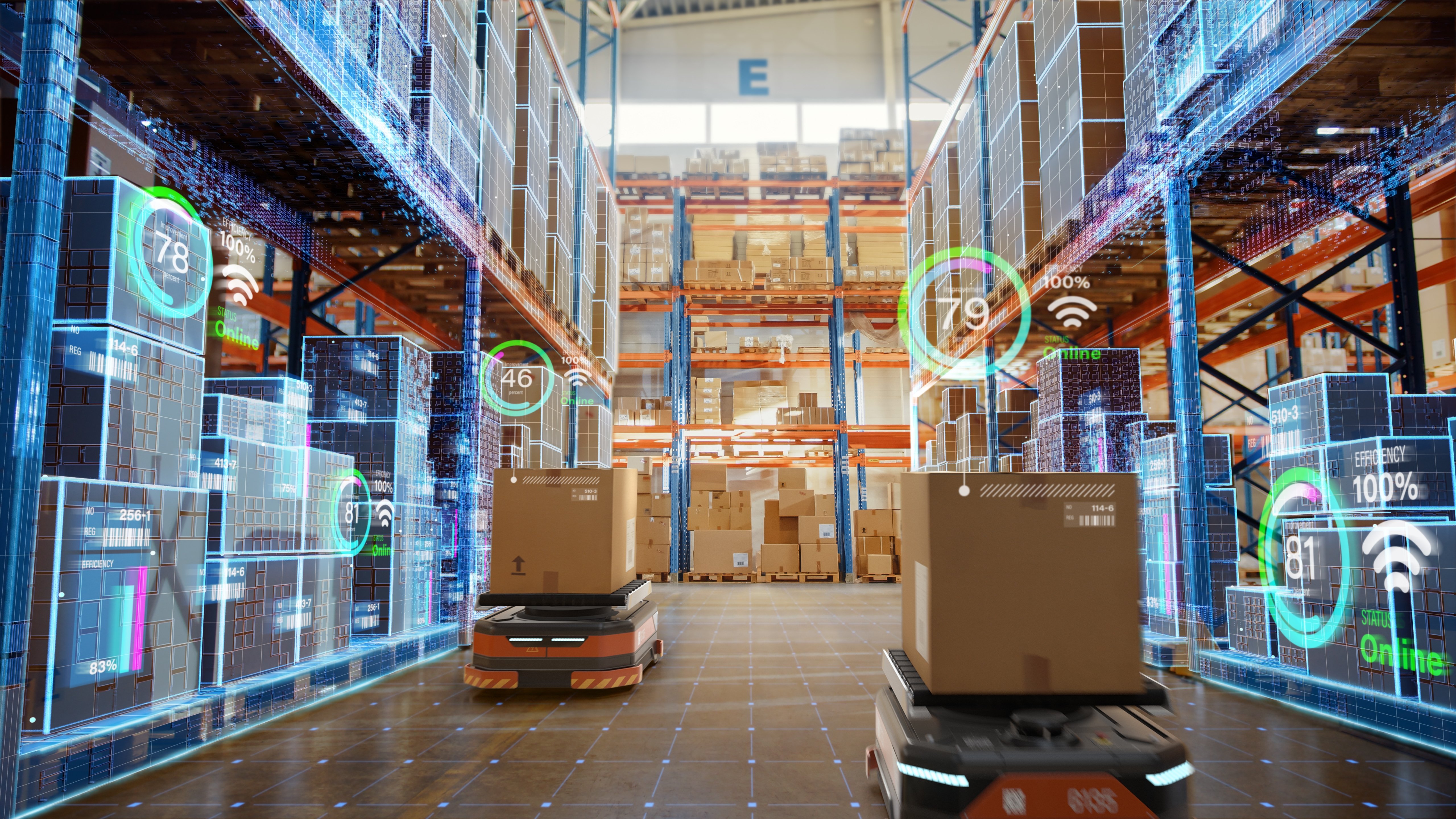
In today's data-driven, interconnected environment, technology has enabled innovation across virtually all sectors. Among the wave of new solutions reaching the market, the integration of Artificial Intelligence (AI) technology has emerged as a powerful tool in transforming packaging and logistics practices. Further, businesses are now actively seeking innovative ways to integrate AI technology into their operations to boost sustainability efforts.
To shed light on how AI can drive more resource-efficient, sustainable practices across supply chains, this blog post outlines the technology’s potential in accelerating sustainability in packing and warehouse automation, logistics processes, route-planning, and more.
Packing and Warehouse Automation
As the world becomes more environmentally conscious, businesses are actively seeking ways to minimise their carbon footprint and enhance sustainability. The packaging industry plays a crucial role in this pursuit, and AI technology has emerged as a powerful tool to drive sustainable practices. By leveraging AI algorithms and machine learning capabilities, companies can make informed decisions, optimise processes, and reduce waste, leading to more sustainable operations.
AI-powered packing and warehouse automation have transformed the packaging industry. With advanced robotics and intelligent machines, companies can streamline packaging processes, reducing material wastage and improving overall efficiency. AI-driven systems can precisely measure and cut packaging materials and identify products with ease, ensuring minimal excess and maximum utilisation. Moreover, automated warehouse systems enable better inventory management, minimising stockpiles and unnecessary resource consumption.These systems ensure simpler invoicing processes and offer means for businesses to optimise their warehouses to reduce downtime and maximise safety.
Amazon, Google and Microsoft have all rolled out AI-powered supply chain technology in recent years. Learn more about intelligent solutions for packing and warehouse operations today.
Logistics Processes
Efficient logistics is essential for sustainable packaging practices. AI can analyse vast amounts of data, including weather, traffic, and shipping patterns, to optimise delivery routes and schedules. By choosing the most eco-friendly transportation options and reducing transportation distances, companies can significantly cut down on their carbon emissions. This not only benefits the environment but also leads to cost savings, making sustainable practices economically viable. AI can also help businesses benchmark their performance, use predictive analytics to dynamically adjust their process flow and generate new strategies to continually meet increasing sustainability efforts. This means your business’s approach to sustainability initiatives can move in lockstep with your commercial aims as you expand your operations.
To optimise their process efficiencies and leverage their operational data, UPS uses AI for smarter demand forecasting, ensuring better resource allocation and a vast reduction in overheads in their service provision.
AI in Route-Planning
AI-based route-planning takes logistics optimisation a step further. By continuously learning from real-time data, AI algorithms can adapt to changing conditions and find the most fuel-efficient and time-saving routes for delivery vans and lorries. This not only reduces the environmental impact but also ensures timely deliveries, enhancing customer satisfaction and empowering your workforce to work with added efficiency. This has the added benefit of enabling businesses to scale sustainability, with technology in place to ensure the growing complexity of increased deliveries and demand can be met.
Systems such as DispatchTrack offer last-in-mile route optimisation to reduce downtimes and maximise delivery efficiencies, empowering drivers to reach their destination with less fuel consumption and less time spent on the road, significantly cutting congestion.
AI in Packaging Design and Manufacturing
Incorporating AI into packaging design and manufacturing processes can result in resource-efficient and eco-friendly packaging solutions. AI algorithms can analyse customer preferences, product specifications, and material properties to design packaging that is both aesthetically pleasing and sustainable, providing high protection capacity without excess material. By using biodegradable and recyclable materials, companies can create eco-conscious packaging without compromising on quality or functionality, and new design systems are affording packaging designers and suppliers that meet the needs of an increasingly eco-conscious market.
From data-led design platforms to anti-counterfeit technology, AI’s presence in packaging is ever-increasing, helping to foster increased performance and less waste reaching landfills each year.
AI in Distribution
AI technology also plays a crucial role in optimising distribution networks. Smart distribution centres equipped with AI can efficiently manage inventory, reduce order-processing times, and minimise product loss. By optimising the supply chain, companies can ensure that products reach consumers with reduced transit times and minimise environmental impact. This means that needless steps can be removed and essential packaging materials and products can reach end users quickly, more affordably and with less strain on the environment.
Amazon is at the forefront of utilising AI in distribution operations. The company has integrated AI-powered robots into its warehouses to enhance the efficiency of picking, packing, and shipping products with remarkable precision. These robots employ advanced computer vision and machine learning algorithms to intelligently navigate the warehouse and fulfil orders with unmatched speed and consistency.
Looking Ahead: Challenges and Opportunities for AI
While AI offers promising solutions for sustainability in the packaging industry, there are challenges to overcome. Data privacy and security concerns, the high initial cost of implementing AI systems, and potential job displacements are among the key challenges. However, with careful planning and collaboration, businesses can navigate these challenges and harness the full potential of AI for sustainability. The packaging industry will no doubt play a huge role in mapping the real-world applications of AI in supply chain technology and sustainability, offering opportunities for industry innovators to lead the way on data-led approaches to manufacturing, fulfilment and waste management.
From packing and warehouse automation to logistics optimisation and distribution management, AI offers a myriad of opportunities for creating eco-friendly packaging solutions. By embracing AI technology responsibly and strategically, businesses can not only reduce their environmental impact but also gain a competitive edge in the market.
Discover more about how we can help enhance your packaging sustainability and reduce your environmental footprint. Feel free to get in touch with us today by sending a message or emailing sales@allpack.uk.com. Our team is ready to assist you in your journey towards a more sustainable future.